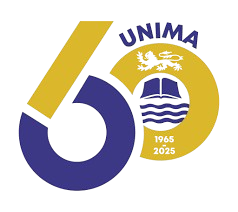Human Ecology short course fosters innovations in the food sector
The Department of Human Ecology and Agricultural Sciences at the University of Malawi recently conducted a 10-day short course designed to address gaps in the country’s food industry. This course was developed after extensive consultations with industry representatives to identify deficiencies in knowledge and skills required from graduates in fields such as food nutrition, chemistry, and biological sciences, who often work as quality managers.
In an interview on the final day of the short course, Dr. Victoria Ndolo, the Head of the department, explained that the course was created to bridge these gaps based on industry feedback.
“In developing the short course, we also aimed to equip participants with skills that could enable them to become independent or start small- and medium-sized enterprises where they can develop food products,” she said.
Dr. Ndolo emphasized the importance of maintaining strong relationships between the industry and UNIMA. She noted that the university can assist with research, ingredient analysis, and recipe formulation, helping industries to produce nutritious products using locally available ingredients, thereby making it easy for Malawians to have access to such products.
The course, which covered topics such as product development, food safety and hygiene, food microbiology, entrepreneurship, and business communication, was attended by 15 participants, including UNIMA alumni, members of the Small and Medium Enterprise Development Institute (SMEDI), and students from Magomero College. This short course also served as a pilot course which was intended to collect feedback for future improvements.
Funding for the course was provided through a grant from the Transforming Higher Learning Institutions project, managed by Michigan State University and USAID. This initiative supports the university’s policy on research and outreach by engaging with the industry to identify gaps and incorporate findings into the generic curriculum, ensuring that graduates are well-prepared to meet industry demands.
Mr Filimon Jere, an alumnus of UNIMA from the department of Chemistry and Chemical Engineering who participated in the short course, shared his positive experience. He explained that the course has equipped him with knowledge to develop innovative products, including food products made from raw materials typically considered food waste, such as potato peels. He also mentioned that the knowledge gained would be valuable in the market. The success of the short course demonstrates how well-targeted educational programs can drive economic growth, create new opportunities, and improve community well-being. As the participants move forward with their new knowledge and skills, the benefits of this course are expected to positively influence the food industry and support sustainable development across Malawi.




